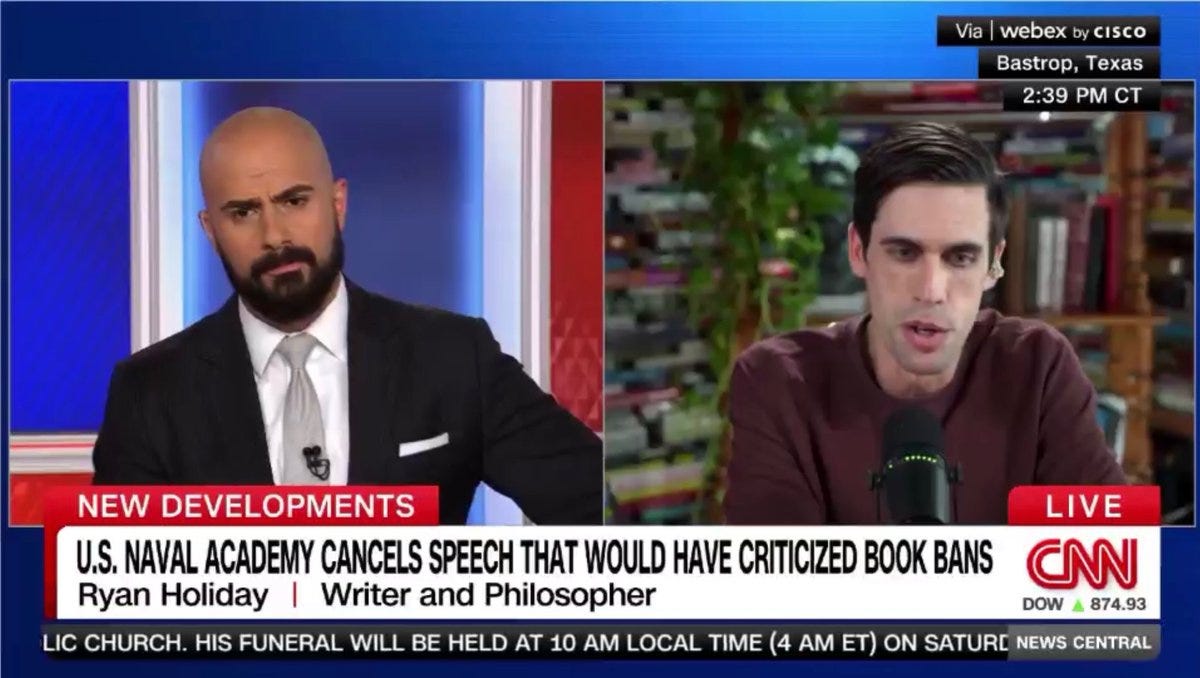Ryan Holiday, popularizer of Stoic philosophy and author of such books as The Daily Stoic and The Obstacle Is the Way, was invited to give a lecture at the U.S. Naval Academy in April. Then, one hour before the lecture, the academy canceled it.
The reason? Holiday had planned to criticize the Trump administration’s executive order banning all “DEI-relate…




